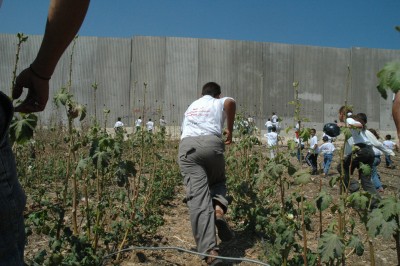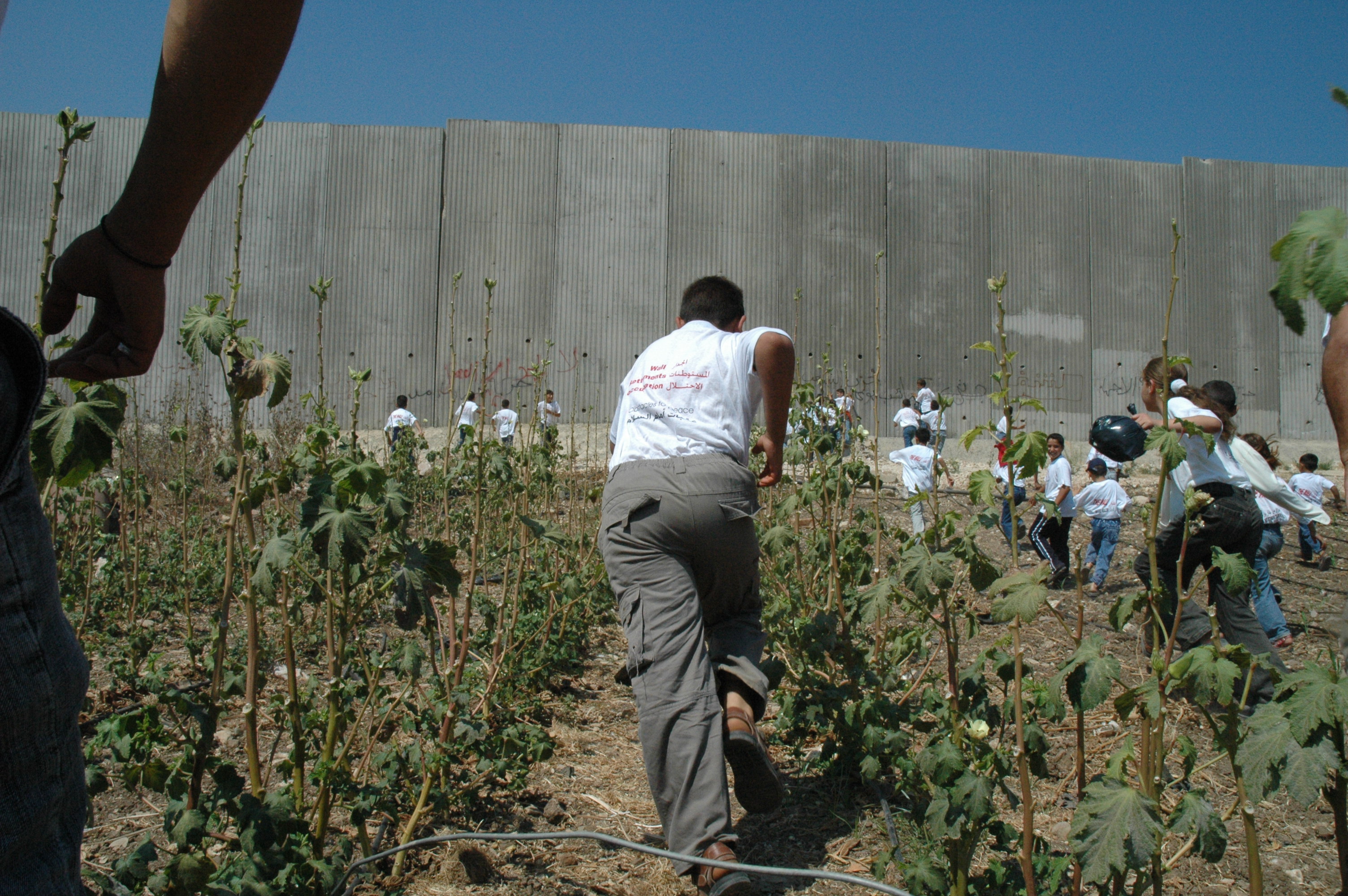
It wasn’t until I had left school and went to study in an Israeli yeshiva that I understood the implications of occupation. Until then, my lack of engagement with the issue meant I uncritically acquiesced to a status quo that disenfranchised millions, subjecting them to military rule. During my time in Israel, I made an effort to study the state’s history and engage with the complex issues surrounding that history and the occupation. It was the first time in my life that political engagement had not only resulted in anger, but, because this time it was personal, had also broken my heart. Israel, a country I desperately loved, was not living up to the ideals it was founded upon and while for progressives there is much about Israel to be proud of, when it came to the “Palestinian issue,” it did not pursue justice with the zeal one would expect of a Jewish state.
Desiring a safe and prosperous Israel while at the same time uncompromisingly advocating for an end to occupation means walking a fine line. It has resulted in both losing old friends and making new ones. Taking such a position means sometimes having to bite your tongue in the presence of friends and family whilst sometimes having to speak out in public when you know that (even though you are the proudest of Jews) your allegiances will be called into question. Finding a safe space to engage with Israel critically is vital and that is what led me to Yachad. Yachad is NGO dedicated to advocating for an end to occupation through the creation of two states, and ensuring the British Jewish community is aware of the facts of occupation, enabling it to properly engage with the issue. This September past, I was privileged to accompany Yachad on a student and youth movement worker trip to the West Bank to see first-hand various aspects of the occupation and meet with the Palestinians and Israelis devoted to ending it. As much as I thought I knew about occupation before the trip, it is difficult to overstate its value and the significance of being able to bring a first-person narrative to the debate.
One of the most difficult days of the trip, certainly in my experience, was the day spent in Ofer Military Court. Palestinians who live under Israeli control in the West Bank (yet not the Israelis who live their illegally) do not have a civil legal system, but rather live under martial law administered in military courts. The details of this are well enough known that I will refrain from repeating them here and instead link to an article I wrote about my experience in the courts here. Suffice to say that all people over the age of 12 in areas B and C are subject to the jurisdiction of the military courts (see more about their jurisdiction here). The most vulnerable of people in this system are, unsurprisingly, children. Separated from their parents in the middle of the night, children as young as 12 are taken for interrogation in the military police stations located in settlements. The children are then detained before being brought before a judge and can spend up to year in detention between being charged and the trial. The NGO Military Courts Watch meticulously documents these cases (which amount to hundreds of children each year) and their website is well worth perusing if you want more of the facts. Some of the facts are indeed shocking. In their 2014 research, they reported that only 5% of children saw a lawyer for interrogation and many were forced to sign confessions in a language they did not understand, undermining the basic tenets of criminal justice. The unfairness of it all resulted in those who went on the trip instigating the Kids Court in Conflict Campaign. Our mission is to raise awareness within the British (and now American) Jewish community about a particular aspect of occupation, namely the military courts and how children are treated within them. Yet we also seek to raise enough money to pay for an on-call duty lawyer who is able to represent Palestinian children in the military courts whenever required. The campaign partners with the law firm Gaby Lasky Law, who do brilliant human rights litigation both within Israel and the Occupied Territories, will be “housing” the lawyer. Gaby Lasky herself, incidentally, is sixth on the Meretz list in Israel’s forthcoming general election.
On the face of it such a campaign is uncontroversial. Demanding that minors receive adequate legal representation in order to ensure the rule of law is upheld is difficult to contest. However, there is a criticism some have made that, in the interests of intellectual honesty and moral clarity, it is important to face up to. It is argued that raising money for a lawyer to undertake work in the military courts is not only tacit acceptance of occupation and its attendant system of martial law, but also normalizes and perpetuates it by ensuring that it is run according to best practices. This is a devastating critique of our campaign; that in attempting to alleviate suffering we are in fact deepening the iniquity of occupation and providing it with the perfect camouflage of human rights.
This is true and I would not be supporting this campaign if I did not acknowledge that. It is not, however, the whole story. The moral duties incumbent upon those of us trying to end occupation are manifold. To obsess over one moral duty at the expense of others is to lead a naïve ethical life. At what cost does such an uncompromising approach to ending occupation come? It comes at the price of allowing millions to face humiliation and suffering at the hands of a foreign power in their own homes because we refuse to help them. Of course liability for these crimes is Israel’s alone, but that is not the essence of the debate. What are at stake are our moral duties as bystanders. Israel’s occupation is a major wrong made up of a multitude of individual iniquities; do we not also have a duty to alleviate the suffering of the victims of those wrongdoings whilst the occupation is still in operation? To deny this duty exists is an approach to occupation that is utilitarianism at its most clinical. In striving for a perfect future it does not account for dignity of the individual in the present. It allows the cries of those suffering presently to cry out in vain in order that we can better demand an uncertain future. That is not to say occupation might never end; one day it will, but it is uncertain when, and in the meantime, what of the pain of those living under it now? To use a hackneyed analogy, when we see a drowning man should we refuse to offer assistance because this will delay improvements to the sea rescue services? Surely not. The duty to save is very real and it exists in the here and now. Hundreds of Palestinians require legal representation because they are being tried in alien courts. Complaining that this campaign upholds an immoral system because the military courts are criminal suo jure does nothing to alleviate the suffering of those going through them now. When we campaign only for the future we are guilty of forgetting about those suffering now.
In fact, it is crucial to this approach that we remain unflinching in advocating for this uncertain future. We need to do what little we can to help those who desperately need it now—in this instance providing legal assistant to children in West Bank military courts—and to do it in a way that does not give credence to occupation. I promote this campaign while standing eyeball to eyeball with occupation and condemning it wholeheartedly as a crime and a stain on Israel’s character. This campaign is not about giving cover to Israel or undermining the pro-Palestinian movement. It is about giving help to those who need it because we have seen their suffering first-hand. We do this work with tears in our eyes because we wish this work was redundant, but are compelled to do it nonetheless because Israel has not lived up to the noble ideas it was founded upon.
I support this campaign wholeheartedly as I feel it is my duty to right this wrong, and I support it while pointing to the military courts and saying to Israel: Look at the harm you cause. Look at the disastrous effects of occupation those of us who believe in equality and fundamental human rights must clean up in your wake. But do not think once we have made life for a small number for Palestinians slightly more bearable this is the end of the matter. Occupation is an existential crime against the Palestinian people and excoriates the souls of those forced to uphold it. End it. End it immediately because that is your duty and if you cannot see that because, if nothing else, you do untold harm to yourself.

